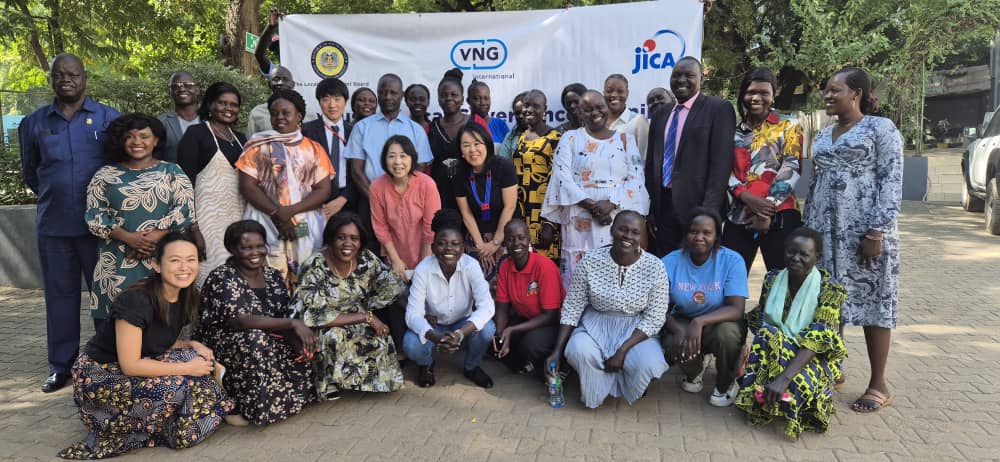Juba, South Sudan – December 10-11, 2024
As the 16 Days of Activism Against Gender-Based Violence (GBV) campaign comes to a close, VNG International, in collaboration with the Japan International Cooperation Agency (JICA) South Sudan, the Women in Local Government Administration (WILGA), the Ministry of Gender South Sudan, and the Local Government Board (LGB), organised a significant training event focused on addressing Sexual and Gender-Based Violence (SGBV) in the workplace and Gender Responsive Governance.
Supported by VNG International's Sustainable Development through Improved Local Governance (SDLG) project and JICA’s Economic Empowerment for GBV Survivors project (2024–2027), the workshop seeks to equip WILGA state coordinators with the necessary tools to articulate their roles in combating SGBV within local governance structures and strengthen the capabilities of WILGA state coordinators to support women in accessing resources and redress mechanisms when faced with SGBV.
The training will equip WILGA state coordinators from ten states and three administrative areas with the skills needed to address SGBV effectively within local government settings. By focusing on SGBV as a critical barrier to women’s participation and leadership in governance, the workshop aims to establish robust mechanisms for reporting, managing, and referring workplace SGBV cases involving women administrators.
In his opening remarks, Mr. Suzuki Tomohiro, JICA Senior Representative, highlighted the importance of addressing SGBV for equitable and sustainable development. He stated, “By empowering women, we are empowering South Sudan. Together with the Ministry of Gender, VNG International, and the gender expert team, this training will serve as a catalyst for positive change.”
Mr. Emmanuel Mori, Resident Project Manager of the SDLG Project, VNG International, South Sudan, underscored the significance of the initiative, saying, “This training represents a vital opportunity for local government officials to gain critical insights into addressing gender-based violence effectively. We can create more resilient communities by empowering women and amplifying their voices in governance.”
This initiative reflects a collaborative commitment among partners to foster an inclusive governance framework that prioritizes safety, equality, and effective service delivery for all citizens.


